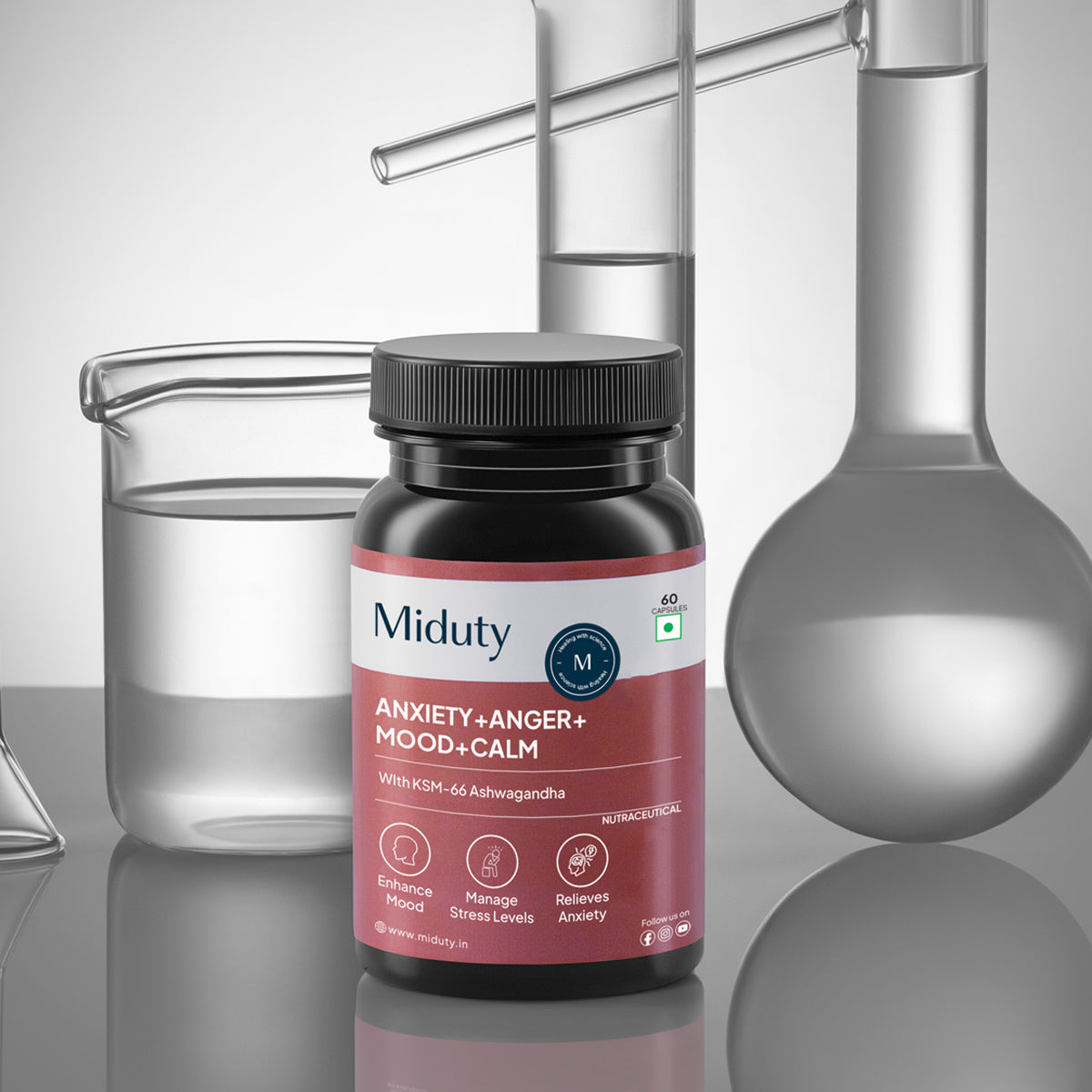
Why Men's Mental Health Matters - International Men’s Day Special
Every year on November 19, the world observes International Men's Day — a day dedicated not just to celebrating men's contributions to family, work, and community, but also to raising awareness about men's health and well-being, especially mental health.
For far too long, men's mental health has been overlooked, misunderstood, or even stigmatized. Society often expects men to be "strong," "tough," and "emotionally resilient," but this very expectation has become one of the leading barriers preventing men from seeking help.
This International Men's Day, it's time to break the silence and shed light on why men's mental health matters — not only for individuals but for families, workplaces, and society as a whole.
Key Takeaways
1. Men's mental health deserves greater attention and open discussion. Social expectations and stigma often prevent men from seeking help, leading to silent struggles with stress, anxiety, and depression. Recognizing and addressing these issues is crucial for healthier individuals and communities.
2. Common mental health challenges in men include depression, anxiety, substance abuse, and PTSD. These conditions may manifest differently in men — often through anger, withdrawal, or overworking — making early recognition and intervention vital.
3. Breaking the stigma starts with open conversations and support. Encouraging men to express their emotions, promoting education, and creating safe spaces like support groups or therapy programs can foster acceptance and healing.
4. Self-care and connection are key to improving men's mental well-being. Simple steps such as acknowledging feelings, maintaining healthy habits, setting realistic goals, and reaching out for help can make a profound difference in emotional balance and resilience.
5. Holistic approaches, including natural supplements, can aid mental wellness. Formulations with ingredients like KSM-66 Ashwagandha, L-Theanine, GABA, and Organic Holy Basil help manage stress, mood swings, and anxiety — complementing lifestyle changes for better mental health.
What is Mental Health?
Mental health refers to a person's emotional, psychological, and social well-being, influencing how they think, feel, and act. It affects how individuals handle stress, relate to others, and make decisions in daily life. Good mental health enables people to cope with challenges, maintain fulfilling relationships, and contribute productively to their communities. It is essential at every stage of life, from childhood through adulthood. Factors such as genetics, life experiences, and environment all play a role in mental health. Promoting mental well-being involves self-care, seeking support, and creating a positive, balanced lifestyle that nurtures both mind and body.
Why Men's Mental Health Is Important?
Mental health is a crucial part of overall well-being — it influences how we think, feel, act, and interact with others. For men, mental health plays an equally vital role, yet it's often neglected due to cultural expectations, gender norms, and lack of awareness.
According to the World Health Organization (WHO), nearly one in four men experiences a mental health disorder during their lifetime. However, men are less likely than women to seek professional help, despite facing high rates of depression, anxiety, and substance abuse.
The consequences are devastating. Globally, men account for over 75% of suicide deaths, making suicide one of the leading causes of death among men aged 15 to 45. These statistics are not just numbers—they represent fathers, brothers, husbands, and friends who struggle silently.
Addressing men's mental health is not a sign of weakness — it's an act of courage, self-awareness, and strength.
Why Men Often Don't Seek Help?
One of the biggest challenges surrounding men's mental health is the cultural stigma tied to masculinity. From a young age, many boys are taught to suppress their emotions with phrases like "man up," "don't cry," or "be strong."
Over time, this conditioning creates emotional barriers that make it difficult for men to express vulnerability or ask for support. The fear of being judged, ridiculed, or seen as "weak" keeps many men suffering in silence. Some of the main reasons men avoid seeking mental health support include:
- Social stigma and fear of judgment
- Cultural pressure to appear strong and self-reliant
- Lack of awareness about symptoms and treatment options
- Limited access to male-focused mental health resources
- Belief that talking about emotions is unmanly
This silence, however, often leads to worsening conditions such as chronic stress, burnout, and suicidal ideation.
Common Mental Health Disorders in Men
Men experience a wide range of mental health challenges, though they often manifest differently than in women. Here are some of the most common mental health disorders affecting men:
1. Depression
Depression in men often goes undiagnosed because symptoms may not always appear as sadness or hopelessness. Instead, men may show irritability, anger, risk-taking behaviors, or emotional withdrawal. Factors such as work stress, financial pressure, and relationship problems can increase vulnerability. Left untreated, depression can severely impact personal and professional life — and in extreme cases, lead to suicide.[1]
2. Anxiety Disorders
Men are equally prone to generalized anxiety disorder (GAD), panic attacks, and social anxiety, but are less likely to talk about it. Instead of expressing fear or worry, they may appear restless, agitated, or overly controlling in an attempt to regain a sense of stability. [2]
3. Substance Abuse and Addiction
Men are statistically more likely to use alcohol or drugs to cope with emotional pain. Substance use often becomes a form of self-medication to numb anxiety, trauma, or loneliness, but it worsens mental health over time and increases the risk of dependence and physical illness.
4. Post-Traumatic Stress Disorder (PTSD)
Men exposed to violence, trauma, or military combat can develop PTSD, characterized by flashbacks, nightmares, emotional numbness, and hypervigilance. Unfortunately, due to stigma, many men hide these symptoms instead of seeking treatment. [3]
5. Bipolar Disorder
Men with bipolar disorder may experience extreme mood swings — from intense highs (mania) to deep lows (depression). This condition can disrupt relationships, work performance, and daily functioning if left untreated.
6. Suicide and Self-Harm
Suicide remains one of the most alarming mental health crises among men. The combination of untreated depression, societal pressure, and emotional isolation creates a dangerous environment where men feel trapped without options. Early intervention, open dialogue, and support networks can save lives.
How Mental Health Affects Men Differently Than Women?
Men often experience mental health challenges differently than women, both emotionally and behaviorally.
While women tend to internalize their emotions (e.g., sadness, guilt, self-blame), men are more likely to externalize distress through anger, aggression, overworking, or substance use. This difference means men's mental health struggles can be easily missed or misinterpreted by family, friends, and even doctors.
Additionally, societal expectations play a major role. Men are often expected to be providers, protectors, and decision-makers, leading to enormous pressure and emotional burnout. When they can't meet these expectations, they may experience guilt, shame, or a loss of self-worth.
Recognizing these gender-specific patterns is essential for creating better mental health awareness and treatment approaches tailored for men.
How to Promote Emotional Strength and Mental Wellness in Men?
To make meaningful progress, we must collectively challenge the stigma surrounding men's mental health. Open conversations, supportive environments, and accessible mental health resources can make a tremendous difference.
Here's how we can start breaking the silence:
1. Normalize Emotional Expression
Encourage men to talk about their emotions openly. Whether it's with friends, family, or professionals, expressing feelings should be seen as a sign of strength, not weakness.
By normalizing emotional conversations, we can help dismantle outdated notions of masculinity that equate vulnerability with weakness. The more openly men communicate, the more emotionally resilient and connected they become.
2. Promote Mental Health Education
Raising awareness about mental health symptoms, treatments, and prevention helps men recognize early warning signs and seek help before conditions worsen.
Educational initiatives — whether through schools, workplaces, or social media — empower men to understand their emotions and take proactive steps toward better mental well-being. Knowledge builds confidence and breaks fear-based stigma.
3. Provide Male-Focused Support Services
Therapy groups, hotlines, and initiatives specifically designed for men can create a safe space to discuss unique struggles without judgment.
Such spaces allow men to share experiences, find solidarity, and learn coping strategies from others who face similar challenges. Tailored programs can bridge the gap between awareness and action, encouraging more men to seek help.
4. Encourage Workplaces to Support Mental Health
Employers can play a key role by promoting mental health days, offering counseling programs, and fostering open discussions about emotional well-being.
A mentally healthy workplace not only boosts productivity but also creates a culture of trust and inclusion. When leaders model openness and compassion, it encourages employees to prioritize self-care and seek support when needed.
5. Lead by Example
Public figures, athletes, and influencers who speak openly about their struggles inspire others to do the same. Visibility matters — it reminds men that they're not alone.
When men see role models prioritizing mental health, it normalizes the idea that seeking help is powerful, not shameful. This ripple effect can inspire countless others to confront their own challenges with courage.
How to Support Men's Mental Health?
Support can come in many forms — from simple acts of listening to encouraging professional help. Whether you're a friend, partner, family member, or colleague, you can play a part in helping men navigate their mental health.
Here are a few effective ways to offer support:
- Listen without judgment. Sometimes men just need to be heard without advice or criticism.
- Ask open-ended questions. Encourage dialogue by asking how they're really feeling.
- Offer professional resources. Suggest therapy, helplines, or support groups.
- Check in regularly. Even a text or call can remind someone that you care.
- Encourage healthy outlets. Exercise, journaling, hobbies, and social connection can all boost mental well-being.
Remember — small gestures can make a big impact when someone feels isolated or overwhelmed.
How Men Can Take Charge of Their Mental Health?
While societal change takes time, men can start taking ownership of their mental well-being today. Here are practical ways to begin:
1. Acknowledge your feelings
It's okay to not be okay. Recognizing your emotions is the first step toward healing. Accepting how you feel allows you to process emotions in a healthy way instead of suppressing them, which leads to long-term resilience.
2. Reach out for help
Whether it's a friend, counselor, or doctor, talking to someone can provide relief and clarity. Opening up can lighten your emotional burden and remind you that support is always available when you take that first step.
3. Prioritize self-care
Regular exercise, adequate sleep, balanced nutrition, and mindfulness reduce stress and improve mood. Making self-care a daily habit nurtures both your body and mind, helping you stay grounded during difficult times.
4. Set realistic goals
Avoid overloading yourself with unrealistic expectations — progress matters more than perfection. Breaking goals into small, achievable steps helps you build confidence and maintain steady emotional balance.
5. Limit alcohol and substance use
While it may provide temporary relief, it can worsen anxiety and depression long-term. Replacing harmful coping habits with healthy alternatives like journaling or exercise promotes lasting emotional well-being.
6. Join men's support communities
Online or in-person groups create safe spaces to share experiences and find mutual understanding. Connecting with others who face similar challenges reminds you that you're not alone and that healing is a shared journey.
Seeking help is not a weakness — it's one of the strongest, most courageous things a man can do.
International Men's Day: A Reminder to Care for Mind and Heart
International Men's Day serves as a powerful reminder to appreciate men not just for what they achieve, but for who they are — complex, emotional, and human.
The theme often revolves around positive masculinity, mental health, and well-being, emphasizing that strength is not about suppressing emotions but learning to manage them healthily.
By creating more open, compassionate conversations about men's mental health, we can help build a society where men feel empowered to ask for help and receive it without fear or shame.
How to Choose the Best Supplement for Men's Mental Health?
When selecting a supplement to support men's mental health, choose one that combines clinically researched, natural ingredients proven to ease stress, boost focus, and balance mood. Look for clean, non-addictive formulas made in certified facilities without artificial additives. A great example is an anxiety supplement formulated with KSM-66 Ashwagandha, L-Theanine, GABA, and Organic Holy Basil — a powerful blend that helps you regain control over stress, mood swings, and anxiety. Together, these ingredients promote calmness, improve resilience, and enhance overall emotional well-being.
Conclusion
Men's mental health matters deeply. It impacts families, workplaces, and entire communities. Ignoring it has long-term consequences, not only for men themselves but for everyone who loves and depends on them.
On this International Men's Day, let's commit to breaking old stereotypes and replacing silence with support. Let's normalize therapy, empathy, and emotional vulnerability. Because when men are mentally healthy, they are not just stronger — they are happier, more connected, and more fulfilled.
FAQ's on Men's Mental Health -
Q1 - What are common mental health issues in men?
Common mental health issues in men include depression and anxiety, which may manifest as irritability or physical symptoms. Other frequent conditions include substance use disorders, Post-Traumatic Stress Disorder (PTSD), and loneliness. Men can also experience disorders such as ADHD and OCD, while suicidal thoughts remain a major concern due to higher suicide rates among men.
Q2 - What is the theme for Men's Day 2025?
The International Men's Day 2025 themes are Celebrating Men and Boys and Supporting Men and Boys. These themes highlight the importance of recognizing men's achievements, honoring their contributions at every stage of life, and promoting strong support systems for their mental, emotional, and physical well-being.
Q3 - Why is mental health important for men?
Mental health is vital for men as it influences their physical health, relationships, and ability to manage life's challenges. Strong mental well-being helps men build healthier relationships, succeed in their careers, and adopt positive lifestyle habits. However, societal expectations and stereotypes often discourage men from seeking help, leading to serious consequences such as higher rates of suicide and substance abuse.
Q4 - What is the purpose of International Men's Day?
International Men's Day is celebrated to recognize men's contributions and positive role models while raising awareness about men's health and well-being issues, including mental health and suicide. It also aims to promote better gender relations and address discrimination and societal pressures that affect men and boys.
Q5 - What are the 6 pillars of International Men's Day?
The six pillars of International Men's Day promote positive male role models, celebrate men's contributions, and support their health and well-being. They also aim to improve gender relations, promote equality, create safer communities, and address the challenges and discrimination men and boys face.
References
| Sr. No. | Reference Links |
| 1. | Depressive disorder (depression) |
| 2. | Anxiety disorders |
| 3. | Post-Traumatic Stress Disorder: Evidence-Based Research for the Third Millennium |












